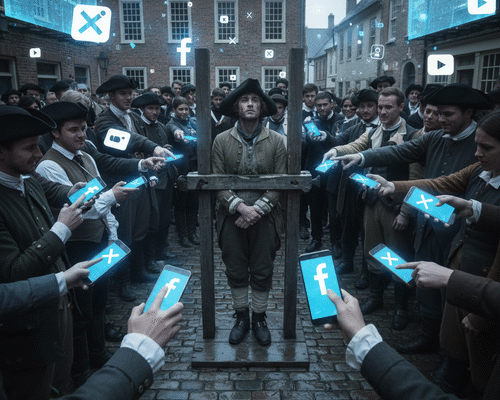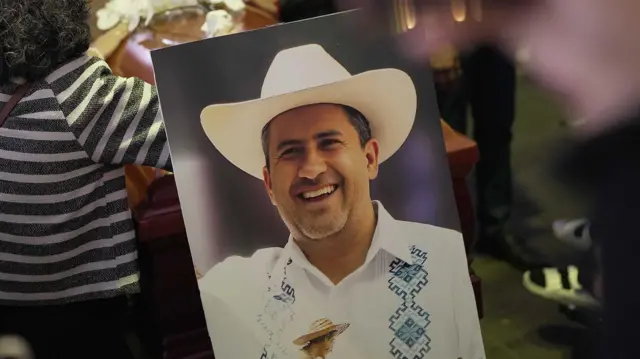The Price of Free Speech: How Modern Cancellation Echoes History’s Darkest Chapters
Did you know that the practice of publicly shaming and exiling individuals for their views isn’t a new phenomenon of the internet age? According to historians, societies have used public humiliation as a tool for social control for centuries. This guide explores how modern “cancel culture” is a digital reincarnation of historical public shaming and what the true cost is for a society that forgets the art of respectful disagreement.
Understanding “Cancel Culture” Before We Look Back
In today’s terms, “cancel culture” refers to the popular practice of withdrawing support for (or “canceling”) public figures and companies after they have done or said something considered objectionable or offensive. This is often amplified on a massive scale through social media. While proponents argue it’s a way to hold the powerful accountable, critics argue it has devolved into a punitive and unforgiving form of mob justice that stifles free expression. A 2021 Pew Research Center study found that 58% of Americans believe the term “cancel culture” describes actions taken to hold people accountable, yet a nearly equal number (41%) see it as unfair punishment.
Key Characteristics of Modern Cancellation:
- Speed and Scale: Accusations can spread to millions in minutes, far exceeding the reach of historical methods.
- Permanence: The internet creates a permanent, searchable record of the transgression, making it difficult for individuals to move on.
- De-platforming: The goal is often to remove the individual’s ability to earn a livelihood or have a public voice by pressuring employers and platforms.
Historical Parallels: Public Shaming Through the Ages
The tools have changed, but the human impulse to cast out those who transgress social norms has deep roots. By examining these historical precedents, we can better understand the dynamics at play today.
-
Ancient Athens: The Vote of Ostracism
In the 5th century BC, Athenians could vote to exile a citizen for ten years. This practice, known as ostracism, wasn’t necessarily for a crime committed but was often used to neutralize a political rival or someone deemed a threat to democracy. As explained by Encyclopedia Britannica, the “winner” with the most votes was banished without a trial, effectively silenced by popular vote. -
Colonial America: The Stocks and Pillory
The stocks and pillory were a common form of punishment in the 16th to 18th centuries. Offenders were physically restrained in public squares, subjected to humiliation and abuse from their fellow townspeople. The punishment wasn’t just physical; it was a form of social death, branding the individual as an outcast. This method relied on community consensus to enforce social norms, much like online shaming today. -
The 20th Century: McCarthyism and Blacklisting
During the Cold War, Senator Joseph McCarthy led a campaign to root out supposed communist sympathizers in America. The House Un-American Activities Committee (HUAC) held public hearings where individuals were pressured to name names. Those accused were often “blacklisted,” losing their jobs and becoming social pariahs, regardless of the evidence against them. According to the Screen Actors Guild, hundreds of artists and writers had their careers destroyed by these accusations.
How is Digital Shaming Different? A Comparison
While the impulse is old, the internet has fundamentally changed the game. Here’s a look at how past and present methods stack up.
| Feature | Historical Public Shaming | Modern Digital “Cancellation” |
| :— | :— | :— |
| Reach | Localized to a town or community | 🌍 Global, reaching millions instantly |
| Permanence | Faded with memory or records | 永久 Permanent and easily searchable |
| Due Process | Often none, based on public opinion | None, driven by social media algorithms and outrage |
| Consequences| Social exile, loss of local status | Loss of employment, digital harassment, severe mental health strain |
Frequently Asked Questions
Q: Isn’t cancel culture just holding people accountable for their actions?
A: That is one of the primary arguments in its favor. Many see it as a tool for social justice and a way for marginalized groups to challenge powerful figures. However, critics point out that the process often lacks context, proportionality, and a path to redemption, distinguishing it from traditional accountability processes.
Q: Does the First Amendment protect people from being “canceled”?
A: The First Amendment protects individuals from government censorship. It does not, as explained by the Foundation for Individual Rights and Expression (FIRE), protect individuals from social or professional consequences from private citizens or corporations.
Q: What is the psychological impact on those who are canceled?
A: Research indicates the experience is profoundly damaging. A study published in Frontiers in Psychology highlights that online shaming can lead to severe anxiety, depression, PTSD, and social isolation, with the intensity and scale of the online mob being key factors.
The Path Forward: Rediscovering Respect in a Polarized World
History shows us that societies have always struggled with dissent. But it also offers a warning: when public shaming becomes a primary tool for enforcing conformity, it creates a climate of fear that chills open inquiry and genuine conversation.
“[The goal of a liberal society] is not to police the speech of its members, but to create a culture of free inquiry and open debate.” – Suzanne Nossel, CEO of PEN America
To move forward, we must distinguish between constructive criticism and destructive cancellation. Building a more resilient and respectful society requires us to engage with ideas we disagree with, offer pathways for redemption, and remember the human cost of turning public discourse into a battlefield.














